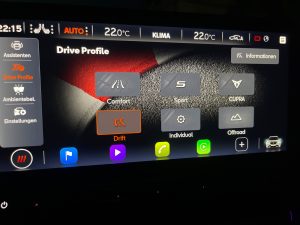General Rental Conditions (as of 10.2021)
- General
The following general rental conditions apply exclusively to contracts concluded with our customers (hereinafter referred to as “renters”) and to our services provided within the scope of these contracts, unless individual deviations are agreed in individual cases. The renter’s conditions, even if they are the subject of an order confirmation, are invalid, even if we do not expressly object to them in individual cases.
- The vehicle and its use
- By taking possession of the rented vehicle (car), the renter acknowledges that it, including its interior and accessories, is in a roadworthy, ready-to-drive, defect-free and clean condition and that he has received the vehicle documents and car keys, unless otherwise agreed in writing when the vehicle is taken over.
- The renter may use the rental car in accordance with traffic regulations, observing the statutory provisions, in particular the road traffic regulations, and the conditions of the vehicle (permissible load, etc.).
- The rental car may only be driven by the renter and the drivers listed in the rental agreement who have a corresponding valid driver’s license. The renter is liable for the fault of all persons to whom he entrusts the use of the car, as well as for his own fault.
- The rental car may not be used for illegal purposes, misused, or used under the influence of drugs or alcohol. It may also not be sublet or transferred to third parties.
Unless the renter has given prior written consent, the rental vehicle may not be used outside of public road traffic. It is also prohibited to participate in off-road driving, driving school exercises, motorsport events or their preparation, and not to use it for test purposes, in commercial passenger or long-distance freight transport, for towing other vehicles or on racetracks. - The rental car may only be used in accordance with the operating instructions, and only the prescribed fuel may be used. The transport of dangerous substances with the car is prohibited.
- The use of the vehicle is only permitted within Europe with the exception of the countries Albania, Armenia, Azerbaijan, Baltic Republics, Bulgaria, Estonia, Georgia, Kazakhstan, Kyrgyzstan, Croatia, Latvia, Lithuania, Malta, Moldova, Romania, Poland, Russia, Tajikistan, Turkmenistan, Ukraine, Uzbekistan, Belarus and the other successor states of Yugoslavia.
- Reservations for the rental car are binding. However, the renter does not need to keep the car ready for longer than two hours after the agreed start of the journey.
- The rental price does not include the costs for fuel and oil consumption. The renter shall pay the following amounts to the renter:
a) the rental price for the expired rental period at the rates listed on the reverse;
b) if agreed, fees for the comprehensive insurance, the passenger accident insurance and the registration of additional drivers, in each case at the rates listed on the reverse, as well as any return fees; - c) Costs for fuel and the refueling service upon return with a non-full tank;
d) all taxes levied on items a) to c) as well as all fees, charges, fines and penalties incurred in connection with the use of the vehicle for which the renter is held liable, unless they are attributable to the renter’s fault;
e) all necessary costs incurred by the renter in collecting outstanding claims against the renter.
The renter may demand an advance payment of up to two months’ rent, but at least €1000,– before the car is handed over.
III. Insurance
- The following insurances exist for the car in accordance with the General Motor Vehicle Insurance Conditions (AKB): liability insurance, as well as comprehensive and partial coverage. Drivers, vehicles, occupants, luggage, goods, etc. are not insured.
- Passenger accident insurance is only available at the renter’s written request. A written agreement must be concluded regarding further insurance requests from the renter. A deductible reduction is possible by arrangement. The deductible depends on the vehicle class and can be requested in writing.
- Obligations of the renter
- The renter undertakes to treat the car with care and in compliance with the technical rules, and to constantly monitor it for roadworthiness and operational safety (oil and water level, tire pressure, V-belt, brakes, door lock, etc.), to lock it, to engage the steering wheel lock and to park the car in a safe place. The keys of the car must be kept inaccessible to unauthorized persons at all times and any existing alarm system must be used. In the event of prolonged use, the renter must have the due maintenance work carried out in an authorized contract workshop after consulting with the renter; the renter will reimburse the costs.
- In the event of operational failure on the open road, the car must be secured and guarded.
- Repair
- If a repair becomes necessary, the renter shall bear the costs if the cause is due neither to improper treatment of the car by the renter nor to his fault or that of his vicarious agents (drivers and others). If the renter has to bear the costs, the renter must inform him before the start of the repair – if costs of more than 150 ,– (excluding value added tax) are to be expected – and obtain his instructions. If the renter fails to do so, the renter shall only reimburse the costs for repairs that were absolutely necessary to maintain the operational and road safety of the vehicle. Enrichment claims of the renter from further repairs are excluded.
- If the odometer fails, the renter must have it repaired immediately in a suitable workshop, whereby the calibration must be maintained. The renter must be informed of such repair immediately in writing. Otherwise, the renter is entitled to base the calculation on a distance of 200 km per rental day.
- Accident, theft, fire
- Any liability or comprehensive damage must be reported to the renter immediately. In any case, the police must be notified immediately and commissioned to record a report.
- Opposing claims may not be recognized either to those involved in the accident or to investigating officers. If the renter leaves the vehicle to a third party, he must oblige this party accordingly.
- The renter must provide the renter with a detailed written report, even in the event of minor damage, with a sketch. The report on accident, theft or fire must contain in particular the names and addresses of the persons involved and any witnesses, as well as the official license plates of the vehicles involved and information about their owners (keepers).
- In the event of an accident, the renter may not leave the scene of the accident (hit-and-run) before the police have completed the accident investigation.
- In the event of theft of the vehicle, vehicle parts or accessories, or burglary into the vehicle or damage by unknown persons while parking, the renter must immediately report this to the police and then inform the renter immediately, submitting the police certificate.
VII. Liability
- The renter’s liability for cases of normal negligence is limited in principle and in amount to the damage that can be covered by a motor vehicle liability insurance within the scope of the AKB, unless it is a breach of essential contractual obligations (cardinal obligations). In this case, as well as in the case of intent and gross negligence, the statutory liability remains in place. This also applies to injuries to life, body or health.
- The renter must return the car in the same condition in which he took it over. The renter is liable for damage to the car and for breach of his contractual obligations. In such a case, he shall also reimburse the consequential damage costs, in particular for experts, legal prosecution, towing and loss of rent, as well as the amount of the reduction in value of the car; loss of rent costs are the contributions in the amount of a daily rent for each day on which the damaged car is not available to the renter. The daily rent consists of the basic amount and the fee for a distance of 200 km. The renter is free to prove that the renter has not incurred any damage or a lesser damage.
- In the case of the risks covered by the partial coverage insurance (including theft, fire, glass breakage), the renter’s liability is limited to his deductible rate (see above III.1.) within the scope of the AKB. If the renter has chosen to take out a comprehensive insurance (liability reduction) in accordance with III.2., his liability is also limited to his deductible due to the risks covered by this (accident damage to the rental vehicle). If the deductible is excluded, this part of his liability also lapses.
The renter is in any case fully liable for damage caused by operating errors of the renter.
Despite an agreed liability reduction, the renter/renters is/are liable for the damage beyond the liability limitation if he/she/they has/have caused this through gross negligence or intent. Intentional causation of the damage event always leads to full liability of the renter analogously to § 81 para. 1 VVG. In the case of damage events caused by gross negligence, in particular when driving the rental car under the influence of alcohol, medication or drugs that impair the ability to drive, or a red light violation, the extent of the renter’s liability is determined by the severity of the fault analogously to § 81 para. 2 VVG.
- Insofar as the comprehensive insurer does not reimburse the damage and consequential damage costs, the renter is liable to the renter in the event of his fault for the damage and consequential damage costs (section VII.2). Irrespective of fault, the renter is in any case obliged to bear the agreed deductible (section III.) in the event of the conclusion of a partial or comprehensive insurance.
- Insofar as a third party compensates the renter for the damage, the renter is released from his obligation to pay compensation.
- The renter releases the renter from any liability for damage to or loss of objects that have been transported, stored or left behind in the vehicle by the renter or someone else before, during or after the car rental.
VIII. Return of the car
- The renter must return the car with the complete vehicle documents and all keys handed out to him to the renter at the agreed location at the latest at the end of the agreed rental period, namely during the renter’s business hours. The return outside of business hours is at the renter’s risk.
- An extension of the rental period requires the renter’s consent before the end of the rental period.
- If the renter does not return the car with complete vehicle documents and all keys after the end of the rental period, the renter must pay the renter the agreed rent as compensation for each commenced day of withholding the car. In this case, the rent will be charged for the duration of the withholding at the respectively valid standard rate. If further damage has been incurred, the renter must compensate for this. The renter is liable for all liability and comprehensive damage incurred after the end of the rental period.
- The renter is entitled to complain about defects in the car to the renter within two working days of discovering defects for which the renter is liable.
- Termination
- If the renter is in default with the payment of a rental installment to a not insignificant extent or if the continuation of the rental relationship is unreasonable for the renter, in particular because the renter has breached an essential contractual obligation, then the renter is entitled to terminate the contract without notice. If the renter makes use of this right, the renter remains obliged to pay the renter the agreed rent until the end of the contractually stipulated rental period, insofar as the renter cannot rent the car to third parties. The renter is free to prove that the renter has not incurred any damage or a lesser damage.
- The renter is entitled to terminate without notice if the car is not roadworthy and the renter does not provide a replacement vehicle.
- Data protection clause
- The renter named on the reverse is the responsible body and service provider within the meaning of data protection law in accordance with the Federal Data Protection Act (BDSG). The personal data of the renter and the driver are collected, processed, stored and used by the renter for the purpose of establishing, implementing or terminating the contract, inaccessible to third parties. Advertising use only occurs for the purposes of the renter’s own advertising (including recommendation advertising) and that of its licensors. The data will only be passed on to third parties if this is necessary for the execution of the contract, e.g. to the renter’s credit card company for the purpose of billing or to participating liability and comprehensive insurers and central clearing houses for the settlement of accident damage. Any further use requires special legal permission or the express and revocable consent of the renter/driver.
The renter/driver can, in accordance with the statutory provisions (e.g. in accordance with §§ 6, 19, 34 BDSG), request information about the data stored about his person, the purpose of the storage and its origin. In addition, the renter/driver has a right to correction, blocking and deletion of the personal data in accordance with the statutory provisions (e.g. in accordance with §§ 6, 20, 35 BDSG). A corresponding request or a request from the renter/driver for correction, blocking or deletion of the personal data is possible via the contact details mentioned in the rental agreement or via any body that has stored the data in accordance with these provisions.
- Note in accordance with § 28 para. 4 BDSG: The renter/driver can object at any time to any processing or use of his data for the purposes of advertising or market or opinion research. The objection must be addressed to the renter named on the reverse, stating the address given there to the password: Objection, or by email, stating the renter named on the reverse, to: info@sportwagen-rental.de.
- Miscellaneous
- The renter is only entitled to set-off if his claims are undisputed, ready for a decision or have been legally established. This does not apply to claims for damages due to a defect in the rented property (§ 536a BGB) and to claims for reimbursement due to rent paid in excess.
- No ancillary agreements have been made. Amendments and supplements to the contract must be made in writing. This also applies to the cancellation of the written form clause.
- Should individual provisions of the contract be or become invalid or unenforceable, this shall not affect the validity or enforceability of the remaining provisions. The invalid or unenforceable provision shall be deemed to be replaced by that valid and enforceable provision which comes closest to the economic purpose pursued by the parties with the invalid or unenforceable provision.
- The renter’s registered office is the place of performance. It is also the place of jurisdiction, provided that the renter is a fully qualified merchant or does not have a general place of jurisdiction in Germany or has moved his domicile or habitual residence abroad after the conclusion of the contract or both are not known at the time the action is brought.
- The law of the Federal Republic of Germany applies to all legal relationships between us and the renter.










